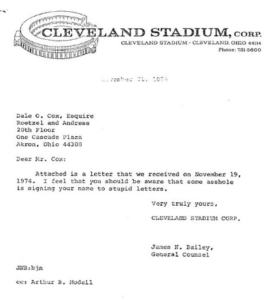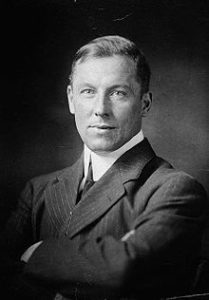Bits and Pieces
Okay, Just Between the Three of Us, I Was Disappointed…
It’s happened again. I recently discovered that a rule of grammar I’ve been dutifully obeying all my life has been rescinded.
I’m talking about the usage of “between” and “among.” The rule, which I learned as a child from my mother, was espoused by Frank Vizetelly in the 1920 edition of A Desk-book of Errors in English: “Among may apply to any number,” he said, but “between applies to two only.”
For decades, I’ve been happily correcting others when they broke this rule. But just last week, I came across an updated entry about it in the Usage Notes section of the Merriam-Webster website.
In spoken English, Merriam-Webster’s editors tell us, the between/among tenet has been violated continually throughout the history of our language.
Okay. That, I can understand. The rabble have always had their ways with the language. What upset me was this: Two of the greatest lexicological luminaries – Samuel Johnson and Noah Webster – allowed for the fact that “between” is sometimes used for three and more.
You can read the entire between/among argument here.
Elon Musk, the Twitterverse, and the True Value of Tesla
Earlier this month, Elon Musk went on Twitter and asked his followers if he should sell 10% of his stake in Tesla.
More than 3.5 million of them responded. And their answer was: “Yes! Sell!”
Elon did. And almost immediately, Tesla stock fell, wiping out nearly $235 billion from the value of the company.
It was, as Bill Bonner pointed out in his blog, the same company, the same products, the same earnings… customers, COVID… everything.
“So why,” he asked, “would a share be nearly 19% less valuable?”
My answer: It’s a form of magical thinking, the same sort of irrational logic I talked about in my November 8 essay on government spending.
Bill shows how this works: If you “add up all the money that was or has been invested with Edison, Ford, Rockefeller, Jobs or even Zuckerberg… and subtract the value of all goods and services rendered, the sum will be hugely positive.” But if you do the same for Elon’s projects, the result will be “a staggeringly negative number.” His businesses do not make money; they lose it. They destroy wealth; they don’t create it.
Elon Musk is the world’s richest man today, because, Bill says, “the Federal Reserve has falsified the value of capital… and rigged the auto market with carbon credits… [His] enrichment, in other words, parallels the growing wealth of the entire elite caste. It is not based on actual output – neither on sales nor on profits – but on fake money and fake interest rates.”
She Could Have Been Mine!
I began my art collecting habit in 1985 when I wandered into an art gallery in Palm Springs, CA. The proprietor, Bernard Lewin, turned out to be one of the world’s most important collectors of Mexican art. He was an intelligent, articulate, and gentle man. For most of a week, I spent an hour or so a day with him, learning about Mexican modernists.
I ended up buying two pieces from him: a mixograph by Rufino Tamayo, and an oil painting by José Clemente Orozco. I could have bought a small oil painting by Frida Kahlo, but Mr. Lewin dissuaded me. “She’s getting a ride because she’s the wife of Diego Rivera,” he said. “If you’d like, I can show you something by him.”
Even back then, I couldn’t afford a Diego Rivera. But if I had stretched my budget, I could have bought that small painting by Frida Kahlo.
On November 16 at Sotheby’s in New York, Kahlo’s 1949 self-portrait – titled “Diego y yo” – sold for $34.9 million. The highest price ever paid for a piece of Latin American art, including works by Rivera himself!
See the painting here.
A New Brand; How Long Will It Last?
On Christmas, Staples Center, home of the Los Angeles Lakers, will be getting a new name: the Crypto.com Arena.
The arena’s owner, AEG Worldwide, said it struck a 20-year naming rights agreement with Crypto.com. The company, which was founded in 2016, facilitates cryptocurrency trading. In addition, according to its website, it provides cryptocurrency-based credit cards and allows users to “borrow up to 10 times their capital to invest in digital currencies.”
Yes, you read that right. And, no, I don’t get it either.
Companies have long used stadium/arena branding deals as part of their PR efforts. These deals provide lucrative long-term income to the stadium/arena owners and teams and expose the companies’ brands to the public whenever the teams are covered by the media.
But it doesn’t always work out for them. During the late 1990s, several dot-coms that put their brands on stadiums didn’t make it. One of the most memorable: Enron Field, home of the Houston Astros.
Read about this latest rebranding here.
Readers Write…
From AG, a friend and colleague, after reading my review of Steven Pinker’s “Rationality”…
Mark,
I’m going to recommend a book that should end up on your all-time Top 10: Steven Pinker’s “Enlightenment Now.” The main thesis – that things are getting better for most people in most places in most ways – is not widely recognized.
Pinker – who is a libertarian-leaning Democrat – was savaged by the far-left for this book, because it undermines their most sacrosanct belief: that we live in a horrible world at a terrible time and only massive government social programs can begin to change that. That led Pinker to two retorts. The first is that if there’s one thing progressives can’t stand it’s progress. The other: It’s not pessimism that causes people to believe the world is getting steadily worse. It’s ignorance.
Thanks for the recommendation, AG. I’ve just ordered a copy!
The End of GE as We Know It
GE surprised many on Wall Street with an announcement on November 9 that it is going to split itself into three separate publicly traded companies. One in aviation, another in healthcare, and the third in energy.
For anyone following GE for as long as I have, this is not a big surprise. The company has been struggling for decades with a messy, overburdened corporate structure and a mountain of debt.
The details, according to Forbes:
* GE Healthcare will become its own company in early 2023.
* GE Renewable Energy, GE Power, and GE Digital will be combined into a single business in early 2024.
* Once those carveouts are completed, all that will remain of GE will be its aviation division, which makes jet engines, avionics systems, and a range of other products for both commercial and military markets. Larry Culp, who has been CEO of GE since 2018, will remain at the helm of this division.
With the split, GE says it is on target to reduce its total debt by more than $75 billion by the end of the year.
I don’t see this as an isolated event in the landscape of big businesses. I expect to see many more.
Worth Quoting
* “Even if it falls your lot to be a street sweeper, go on out and sweep streets like Michelangelo painted pictures; sweep streets like Handel and Beethoven composed music; sweep streets like Shakespeare wrote poetry.” – Martin Luther King, Jr.
* “To the most trivial actions, attach the devotion and mindfulness of a hundred monks. To matters of life and death, attach a sense of humor.” – the Chinese philosopher Zhuangzi
* “Happiness does not come from doing easy work but from the afterglow of satisfaction that comes after the achievement of a difficult task that demanded our best.” – Theodore Isaac Rubin
3 Words I’m Trying to Work Into My Conversations
* Shavetail is US Army slang for a newly commissioned officer. It comes from the practice of shaving the tails of young, newly broken pack mules to distinguish them from seasoned ones. A derogatory term, it can also refer to any inexperienced person. Example: “While you two shavetails were goofing around, I got the job done.”
* Toplofty – a humorous colloquialism that appeared in the first half of the 19th century – means haughty and arrogant. Example from James Joyce’s Finnegans Wake: “… celescalating the himals and all, hierarchitectitiptitoploftical, with a burning bush abob off its baubletop…”
* Xenology is the scientific study of extraterrestrial life. It was derived from the Greek “xenos” (stranger, wanderer). Example: “His interest in xenology motivated him to start writing science fiction.”




